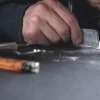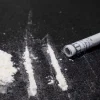What Is Medical Detoxification?
Medical detox is a process that involves various interventions aimed at helping people overcome addiction to drugs or alcohol. It is often the first step in substance abuse treatment and an essential part of the recovery process.
Detoxification is the process where the body rids itself of toxins, including drugs and alcohol. However, when a person becomes dependent on a substance, their body may experience a range of withdrawal symptoms when they try to stop using. These symptoms can be severe and, in some cases, life-threatening. And this is where medical detox comes in.
Clients may receive medication-assisted treatment (MAT) during the medical detox process to help manage withdrawal symptoms and intense cravings. MAT involves the use of medications, such as buprenorphine, methadone, or naltrexone, to alleviate symptoms of withdrawal and reduce the risk of relapse.
Read on to learn more about medical detox, and how Resurgence Tennessee can help you detox safely if you are struggling with drug and alcohol issues!
Understanding Addiction

According to the Substance Abuse and Mental Health Services Administration (SAMHSA), addiction is a complex disease that can be a complicated and overwhelming experience for the individual who is addicted and their loved ones.
Understanding addiction and withdrawal symptoms is a critical first step in recovery.
What Is Drug Addiction?
Addiction is a chronic, relapsing disorder characterized by compulsive drug-seeking and use despite the harmful consequences. It is a condition that affects the brain and its reward center, leading to the release of large amounts of dopamine. Dopamine is a neurotransmitter that produces feelings of pleasure and happiness.
After prolonged drug use, the brain adapts to the increased dopamine levels, and the individual requires larger doses to achieve the same effect. This leads to physical dependence and addiction.
Common Types of Addiction
Addiction can take many forms and the substances that people abuse vary widely. Some of the most common forms of drug addiction include:
- Alcohol addiction
- Addiction to prescription drugs like opioids and benzodiazepine
- Addiction to illegal drugs such as cocaine, heroin, and methamphetamine
- Nicotine addiction
- Gambling addiction
- Sex addiction
24/7 Drug Withdrawal Hotline
888-290-5254
Physical and Psychological Withdrawal Symptoms
When an individual becomes physically dependent on a substance, their body becomes used to having the drug in their system. If they try to stop using the drug, they can experience a range of physical and psychological withdrawal symptoms, including:
- Muscle aches and pains
- Nausea and vomiting
- Insomnia
- Seizures
- Anxiety and depression
- Tremors and shaking
- Irritability and mood swings
The Risks of Withdrawal Without Medical Supervision
Attempting to withdraw from a substance without medical supervision can be dangerous and potentially fatal. The severity of withdrawal symptoms can vary depending on the substance, the duration of use, and the individual’s health status.
Some severe risks associated with withdrawal without medical supervision include seizures, heart attacks, and strokes. Medically supervised detox is a safe and effective way to manage withdrawal symptoms and minimize the risks associated with quitting a substance.
It provides clients with 24/7 medical care and support, while medication-assisted treatment helps reduce the severity of withdrawal symptoms and the risk of complications.
The Medical Detox Process

Although the decision to seek professional help for addiction can be difficult, it is a critical first step in the recovery process. Medical detox is a safe and effective way to manage the physical and psychological withdrawal symptoms as you try to beat drug abuse.
Medical detox is a structured and supervised process that involves addiction medicine to manage withdrawal symptoms and support the body’s natural detoxification process. This process helps people battling addiction safely and comfortably detox from drugs or alcohol while minimizing the risk of complications.
Medical detoxification often happens in a rehab facility, hospital, or medical detox center, where clients can receive around-the-clock medical care and support. At Resurgence Tennessee, our team of healthcare professionals, including doctors, nurses, and substance abuse counselors, work together to develop an individualized treatment plan based on your unique needs and circumstances.
Understanding the medical detox process can help you make an informed decision about addiction treatment.
24 Hour Addiction Treatment – Call Now!
888-290-5254
The Steps Involved in Medical Detoxification
The medical detox process often involves the following steps:
Evaluation and Assessment
Our healthcare professionals will assess the client’s physical and mental health status and evaluate the severity of their substance abuse problem. This information is used to develop an individualized substance abuse treatment plan.
Medication-Assisted Treatment
Medication is often used to manage withdrawal symptoms, reduce cravings, and prevent relapse. Medication-assisted treatment entails close monitoring by healthcare professionals during treatment. The doctors will adjust your treatment plan if necessary.
Withdrawal Symptoms Management
Healthcare professionals will monitor and manage the individual’s withdrawal symptoms to ensure their safety and comfort. This may include providing IV fluids, monitoring vital signs, and administering medications to manage symptoms.
Nutritional and Emotional Support
This involves providing nutritional and emotional support to the clients during the detox process. Nutritional support may include a balanced diet and dietary supplements to address vitamin deficiencies.
Conversely, emotional support may include counseling, therapy, or support groups to help address any underlying mental health issues that may be contributing to drug abuse or addiction.
The Role of Healthcare Professionals in Medically Supervised Detox Centers
Healthcare professionals play a critical role in the medical detox process. They monitor the individual’s physical and mental health status, adjust medication as necessary, and provide emotional support.
Our healthcare professionals work as a team to ensure that clients receive the best possible care during the detox process.
The Benefits of Medical Detox
Medical detox is a safe and effective way to manage withdrawal symptoms and minimize the risks associated with quitting a substance. It provides individuals with the support and care they need to successfully complete the detox process and begin their journey to recovery. Medical detox can also help individuals avoid relapse and maintain their sobriety in the long term.
Medications Used in Medical Detox
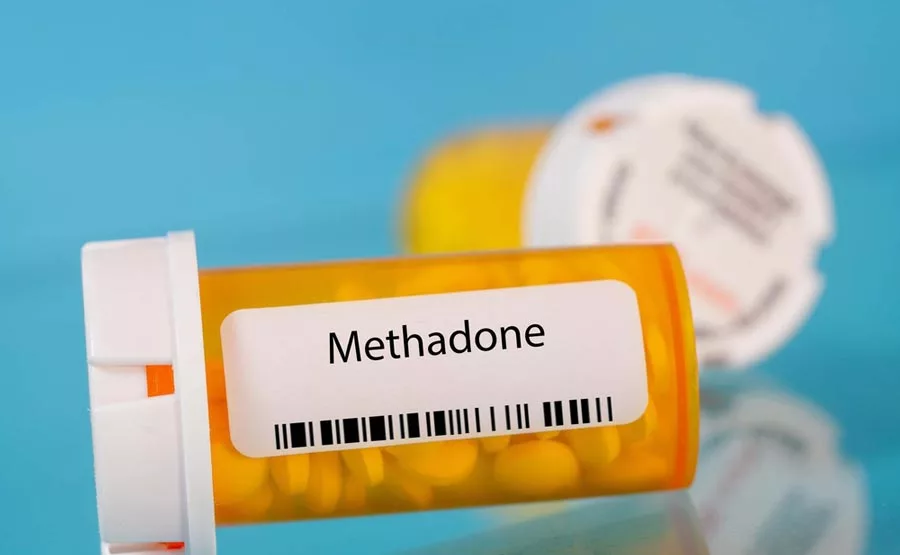
While undergoing detox from drugs or alcohol can be challenging, medications can help make the process more manageable.
Medical professionals use various medications during medical detox to help individuals ease withdrawal symptoms and reduce the risk of relapse.
Overview of Medications Used in a Medical Detox Center
Medications used in medical detox, include medication-assisted treatment, symptom-specific medicines, and medication for co-occurring mental health disorders.
- Medication-assisted treatment is used to manage cravings and prevent relapse
- Symptom-specific medication is used to manage withdrawal symptoms
- Medication for co-occurring mental health disorders is used to manage underlying mental health conditions that may contribute to drug abuse
Medications for Opioid Detox
Opioid addiction is a chronic disease that affects millions of individuals globally. Medications for opioid addiction usually include full opioid agonists and partial opioid agonists.
Methadone
Methadone is a full opioid agonist used for decades to treat opioid addiction. It is usually administered in a clinical setting under medical supervision. Methadone can help reduce opioid withdrawal symptoms, minimize cravings, and prevent relapse. It works by binding to the same receptors in the brain that opioids bind to, but it does not produce the same intense high.
This drug can be effective in reducing withdrawal symptoms and cravings, but it can also be addictive and can have potential side effects, such as drowsiness and constipation.
Naltrexone
Naltrexone is a medication used to block the effects of opioids in the brain. It can help prevent relapse by reducing the pleasurable effects of opioids. Naltrexone is non-addictive and is administered as a monthly injection or a daily pill. It is most effective as part of a comprehensive treatment program that includes counseling and behavioral therapies.
Buprenorphine
Buprenorphine is a partial opioid agonist that binds to the same receptors in the brain that opioids bind to. It produces less of an intense high than opioids and can help reduce withdrawal symptoms and minimize cravings.
This drug is often used with naloxone, a medication that can reverse an opioid overdose. Buprenorphine can be administered as a pill, film, or injection and is most effective when used as part of a comprehensive treatment program.
24 Hour Alcohol Addiction Treatment
888-290-5254
Medications for Alcohol Detox
Medications commonly used for alcohol addiction, include benzodiazepines, antipsychotics, and antidepressants.
Benzodiazepines
Benzodiazepines or benzos are drugs used to treat anxiety, insomnia, and seizures. They can also be used to manage withdrawal symptoms during medical detoxification.
Benzos work by increasing the activity of a neurotransmitter called gamma-aminobutyric acid (GABA), which can help reduce anxiety and seizures. However, they can be addictive and cause side effects such as drowsiness and confusion.
Antipsychotics
Antipsychotics are a class of medications used to treat schizophrenia, bipolar disorder, and other mental health conditions. They can also manage agitation and other symptoms during alcohol withdrawal.
These medications block the activity of dopamine, a neurotransmitter involved in reward and pleasure. But they can have potential side effects, such as weight gain and increased risk of diabetes.
Antidepressants
Antidepressants are a class of medications used to treat depression, anxiety, and other mental health conditions. They can also be used to manage symptoms during alcohol withdrawal.
Antidepressants increase the activity of certain neurotransmitters, such as serotonin and norepinephrine. Their potential side effects include nausea and sexual dysfunction.
Medically-assisted detox is an essential component of a medical detox program. The medications used in medical detox vary depending on the type of addiction, the severity of withdrawal symptoms, and any underlying mental health conditions.
Healthcare professionals work closely with individuals during medical detoxification to develop an individualized treatment plan that includes medications as part of a comprehensive treatment program.
Alternative Therapies for Medical Drug Detox

Although medication-assisted treatment is a critical component of drug detox, many people also benefit from alternative therapies.
Alternative therapies refer to non-conventional approaches to healthcare that are used together with traditional medical treatments. These therapies can effectively manage physical and emotional symptoms, reduce stress and anxiety, and improve overall well-being.
They include:
Massage Therapy
Massage therapy involves the manipulation of soft tissues in the body, such as muscles and tendons. It can effectively reduce muscle tension, promote relaxation, and improve circulation.
This therapy approach can be especially helpful during drug detox to manage physical symptoms, such as muscle aches and headaches, and to promote overall well-being.
Acupuncture
Acupuncture is a form of traditional Chinese medicine that involves the insertion of thin needles into specific points of the body. It is believed to stimulate the body’s natural healing processes and improve the flow of energy, or qi.
This alternative treatment can effectively manage pain, reduce anxiety, and improve sleep quality. It is often used during medical detox to manage withdrawal symptoms and promote relaxation.
Art and Music Therapy
Art and music therapy involves using creative expression to promote emotional healing and well-being. Art therapy can involve a range of activities, such as painting, drawing, and sculpting, while music therapy can involve listening to or playing music.
These therapies can be effective in managing emotional symptoms, such as anxiety and depression, and promoting overall well-being.
Yoga and Meditation
Yoga and meditation have been used for thousands of years to promote physical, mental, and spiritual health. They involve a combination of physical postures, breathing exercises, and mental focus.
Meditation and yoga therapy can effectively reduce stress, improve mood, and promote holistic recovery. They can also help manage withdrawal symptoms, reduce cravings, and prevent relapse.
Why Is Aftercare Important?

Aftercare is an essential component of addiction treatment that helps individuals maintain their recovery long-term. It refers to the ongoing support and services individuals receive after completing medical detox and other primary treatment programs.
Definition of Aftercare
Aftercare is a critical part of addiction treatment that helps individuals maintain their sobriety and avoid relapse. It can include a range of services, such as individual and group therapy, peer support groups, and ongoing medical and psychiatric care.
Continuous care services or aftercare is designed to provide ongoing support and help individuals develop the skills and tools they need to maintain their recovery over the long term.
Common Forms of Aftercare
There are many different forms of aftercare, and the specific services and support individuals get will depend on their needs and circumstances. Common forms of aftercare include:
Individual and Group Therapy
Ongoing counseling and therapy can help individuals address underlying issues that contribute to addiction, develop coping skills, and manage stress and triggers.
Peer Support Groups
Peer support groups and 12-step programs like Alcoholics Anonymous and Narcotics Anonymous can provide individuals with a sense of community and support. They also offer a safe place to share experiences and receive encouragement from peers.
Medical and Psychiatric Care
Ongoing medical and psychiatric care can help individuals manage co-occurring mental health conditions and address any physical health issues related to addiction.
Sober Living Homes
Sober living homes provide individuals with a safe, supportive environment where they can continue to focus on their recovery, practice healthy behaviors, and develop life skills.
The Role of Aftercare in Long-Term Recovery
Aftercare is essential to long-term recovery because it provides ongoing support to enable individuals to maintain sobriety. Addiction is a chronic condition requiring ongoing management, and aftercare offers the resources and support individuals need to manage their addiction and maintain their recovery over time.
Besides providing ongoing support, aftercare can help people develop new skills and habits that support their recovery. This can include developing new coping skills, building a supportive social network, and managing stress and triggers.
The Risks and Side Effects of Medical Detox
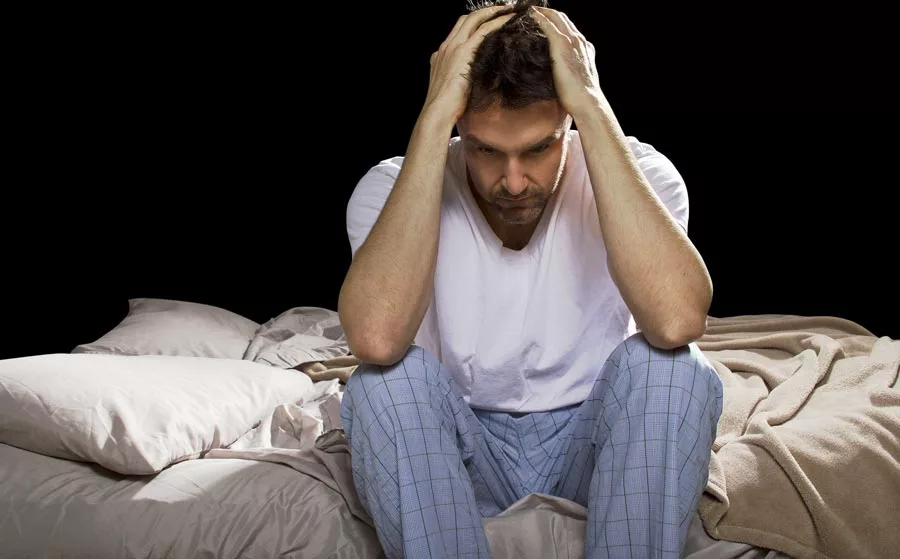
Medical detox is a critical first step in addiction treatment, but it has its risks and side effects. Knowing the process’s potential risks and side effects can help clients safely manage withdrawal symptoms and start their recovery journey.
Overview of Risks and Side Effects
Medical detox can be a safe and effective way to manage withdrawal symptoms, but there are some potential risks and side effects. These can include physical health risks, such as seizures, dehydration, and electrolyte imbalances, or psychological risks, such as depression, anxiety, and suicidal thoughts.
The Risks of Medical Detox Without Professional Supervision
One of the most significant risks of medical detox is attempting to detox without professional supervision. Withdrawal symptoms can be severe or fatal in some cases. Trying to detox on your own without medical care can be highly hazardous.
It’s essential to seek professional medical detox, where individuals receive 24/7 medical supervision and support from trained professionals. Medical detox centers can help individuals safely manage withdrawal symptoms, provide medical care and monitoring, and offer emotional support during this challenging time.
The Side Effects of Medication-Assisted Treatment
Medication-assisted treatment is a common approach to managing withdrawal symptoms during medical detox. However, like all medications, there are potential side effects to be aware of. These can include dizziness, drowsiness, nausea, vomiting, and constipation.
It’s crucial to discuss the potential side effects of medication with your healthcare provider and understand the risks and benefits of any medications you may be prescribed. It’s also vital to follow your medication regimen as directed and communicate any concerns or side effects with your healthcare provider.
Seeking professional medical detox and following medication regimens can help you safely manage withdrawal symptoms and avoid potential risks and side effects. With the proper support and care, individuals can start their recovery journey and achieve lasting sobriety.
Medical Detox Hotline – Call Now!
888-290-5254
Detox Safely at Resurgence Tennessee
Medical detox plays a vital role in addiction treatment, serving as a crucial first step for individuals seeking to manage withdrawal symptoms and embark on a path toward sustained recovery. Through a comprehensive approach, which includes medication-assisted treatment, alternative therapies, and aftercare, medical detox provides individuals with the necessary tools and support to effectively address their addiction.
Engaging in professional medical detox and following medication regimens under the supervision of healthcare professionals can help ensure individuals safely manage withdrawal symptoms and mitigate the risk of adverse effects.
Continued care and support through aftercare programs are critical for maintaining sobriety and rebuilding one’s life. Medical detox offers an excellent opportunity for individuals to take control of their lives and reclaim their health and well-being.
Work with experienced healthcare professionals at Resurgence Tenneessee and use the available resources to confidently navigate the detoxification process and move forward on the path toward long-term recovery.
Call Resurgence Tennessee today for more information about our medical detox services!
